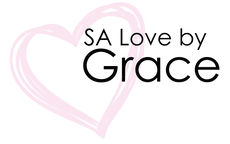Kinderbijslag, Child benefit in the Netherlands

Kinderbijslag, is a benefit to help with the cost of looking after a child. It is paid once every quarter
- January to March
- April to June
- July to September
- October to December
You can get child benefit until your child reaches the age of 18.
Most people who live or work in the Netherlands are insured under the Dutch child benefit scheme. You are insured when? You are covered by the Dutch national insurance schemes. These include the schemes for old-age pension (AOW), survivor benefit (Anw) and long-term care (Wlz).

What are the exceptions to receive the benefit Kinderbijslag?
If you live in the Netherlands And:
- You are a diplomatic or consular representative of another country. Your family members will only be insured if they work in the Netherlands or receive a Dutch social security benefit
- You are a non-Dutch national who has been posted to work in the Netherlands for the administrative, technical or household staff of a diplomatic or consular representative of another country and you will be working in the Netherlands for less than 10 years
- You work outside the Netherlands in a country of the European Union or European Economic Area.
- You work for the goverment of another country or the government of Curaçao, Aruba or Sint Maarten. Your family members will only be insured if they work in the Netherlands or receive a Dutch social security benefit.
- You work for an employer or for a client (if you are self-employed) who is based outside the Netherlands in a country that is not an EU/EEA Member State and that does not have a social security agreement with the Netherlands
- You work as a civil servant for an international organization such as NATO or the EU. It is possible that your family members are insured in the Netherlands but this will depend on the agreement between the Netherlands and the international organization. If they work in the Netherlands or receive a Dutch social security benefit, they will probably be insured
- You work in the Netherlands and you have a posting certificate (certificate of coverage) from another country
- You are staying in the Netherlands temporarily for study purposes and you do not work here,
- You work in international transport for a non-Dutch employer, transporting persons or goods mainly outside the Netherlands. Different rules apply within the EU and EEA.
If you live outside the Netherlands And:
- You work in international transport for a company based in the Netherlands and you transport goods or persons. If you live on board ship and you are insured in the Netherlands, your family members will be insured with you (co-insured) providing they also live on board. If you work most of the time in the country where you live, or if you work for your employer at a company branch located outside the Netherlands, you will not be insured in the Netherlands. Different rules apply within the countries of the European Union.
- You are staying outside the Netherlands temporarily to study and you do not work in the other country
- You are receiving care in one of a number of care institutions outside the Netherlands, such as the Dutch sanatorium in Davos
- You are employed and pay tax and social insurance contributions in the Netherlands, and you do not have a posting certificate from another country
- You are self-employed in the Netherlands and generate profit from a Dutch enterprise which is subject to income tax
- You work outside the Netherlands temporarily and you have a Dutch posting certificate
- You are a Dutch civil servant working outside the Netherlands for a Dutch embassy or consulate or another Dutch goverment institution. Your family members will stay insured as well, unless they start working outside the Netherlands and earn more than the tax-free threshold

Applying for child benefit
After you register your baby with your municipality (gemeente), you will automatically receive a letter from SVB. You can then apply for child benefit online via My SVB.
When will you receive your first child benefit payment?
The date of the first payment depends on when your child was born. Remember the Child benefit is paid every quarter, payments are made in the first week of January, April, July and October.

You already receive child benefit what to do?
If you live in the Netherlands and already receive child benefit and you have another child, you do not have to report the birth to SVB. The municipality (gemeente) will be informed to SVB. You will receive an automatic letter showing your new child benefit amount.
It is important to register your child with your health insurer within 4 months. You can then be sure that your medical costs will be repaid.
If you live outside the Netherlands and you have another child, you should report your child's birth to SVB.
If you and your partner split the Child benefit is paid to the parent who lives with the child.

This kinderbijslag benefit since 01 July increased by 20 euros per quarter so is like this:
- Aged 0 - 5 will receive 249,31 euros
- Aged 6 - 11 will receive 302,74 euros
- Aged 12 - 17 will receive 356,16 euros
I f you want to know more about this visit the SVB website
With love
